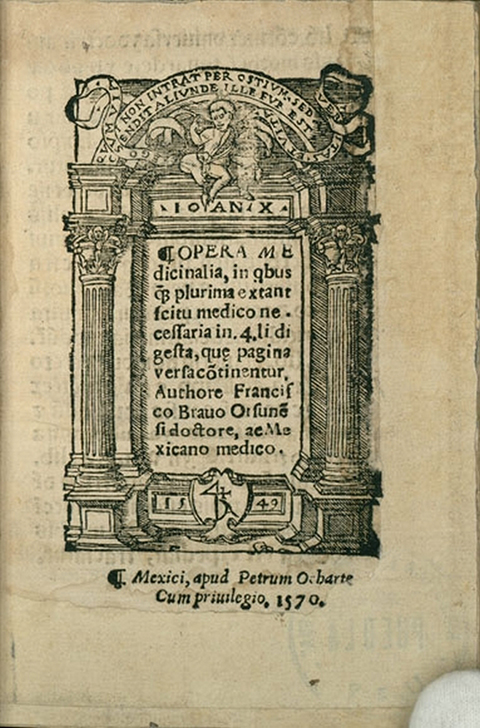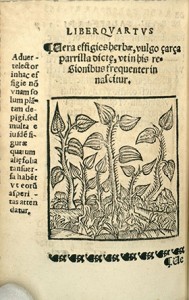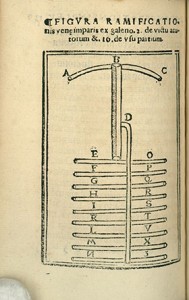
With the Dell Medical School’s inaugural class set to arrive in 2016, it’s only fitting that one of our most innovative archiving projects should get a notable addition from the field of medicine.
The international partners of the digital Primeros Libros project have incorporated the first medical text printed in the New World, Francisco Bravo’s Opera Medicinalia.

The volume — which was printed in 1570, thirty short years after the arrival of the first printing press in the western hemisphere — is composed of four treatises, covering medical topics such as epidemiology (an entire treatise on “tabardete,” thought to be an antecedent of typhus), archaic treatments (bloodletting) and medicinal herbs (the last chapter focuses on Smilax aspera or Sasparilla root, which was prevalent in Mexico and North America), and features remarkable engravings, including a rudimentary diagram of the human circulatory system.

The digital iteration of Opera Medicinalia resulted from the only known copy of the original printing still in existence, housed in La Biblioteca José María Lafragua at the Benemérita Universidad Autónoma de Puebla in Mexico.
The Primeros Libros project — of which the University of Texas Libraries and Benson Latin American Collection are founding members — seeks to digitize the first books published in the Americas, focusing initially on works published in Mexico in the 16th century. Each participating member library is entitled to a full set of the digitized exemplars of all partners as part of the project’s innovative preservation and access strategy. The project inventory currently includes over 349 exemplars — contributed by 21 partner institutions — of the 136 titles that are known to have survived to the present day.
The National Institutes of Health’s blog at the U. S. National Library of Medicine has more information on the history and importance of this volume.
